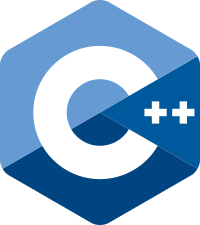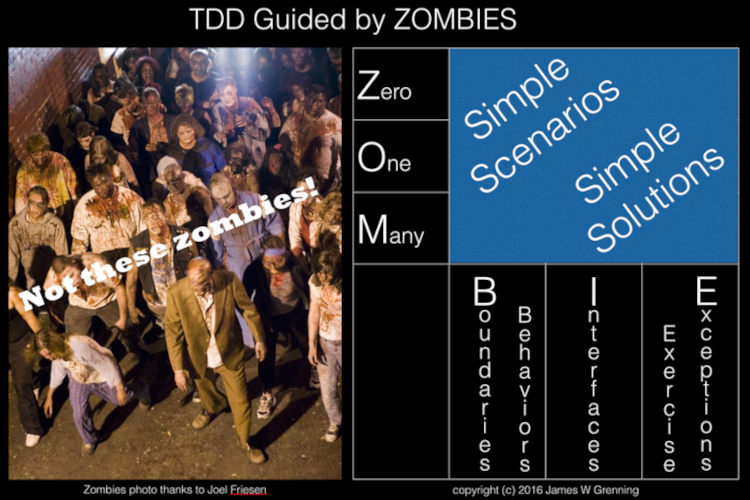?
Slides configuration
Slide Notes:
Hide
On Slide
On Separate Page
Merge Fragments
Show Slide Numbers
Apply
Reset
How to save slides as pdf?
Open the print dialog.
Change
Destination
to
Save to PDF
.
Change
Layout
to
Landscape
.
Change
Margins
to
None
.
Disable
Print headers and footers
option.
Enable
Print backgrounds
option.
Click the
Save
button.
Choose a filename and destination.
# C/C++ Programming  --- ```mermaid kanban column1[Templates] task1[Class Templates] task2[Non-Type Template Parameters] task3[Function Templates] task4[Auto Function Arguments] column2[Concepts] task5[Restricting Template Parameters] task6[Standard Library Concepts] task7[Writing Custom Concepts] ``` --- ## Class Templates --- The C++ standard library is full of templates. --- ```c++ std::vector<double> doubles{}; std::vector<int> integers{}; std::vector<std::string> strings{}; std::vector<std::unique_ptr<Animal>> animals{}; std::vector<std::vector<char>> char_matrix{}; ``` ```c++ std::unordered_map<std::string, int> students{}; ``` ```c++ std::optional<Root> roots{}; ``` Note: * We've been using templates for a while now. * STL = Standard Template Library. --- But why? --- What if std::vector did not have a template argument? --- ```c++ [] class VectorOfIntegers { public: int operator[](int idx) const { return data_[idx]; } int size() const { return size_; } private: int* data_{}; int size_{}; }; ``` ```c++ [] class VectorOfDoubles { public: double operator[](int idx) const { return data_[idx]; } int size() const { return size_; } private: double* data_{}; int size_{}; }; ``` Note: * Implementation is exactly the same, only the type of the elements differs! --- Generic classes avoid code duplication! --- ```c++ [] template <typename T> class Vector { public: T operator[](int idx) const { return data_[idx]; } int size() const { return size_; } private: T* data_{}; int size_{}; }; ``` ```c++ Vector<int> integers{}; Vector<double> doubles{}; ``` Vector as a class template. Note: * `template` keyword. * Template arguments between `<` and `>`. * `typename` for template arguments that are a type. --- ```c++ Vector<int> integers{}; ``` ```mermaid block-beta downArrow<[" "]>(down) ``` ```c++ class Vector_int { public: int operator[](int idx) const { return data_[idx]; } int size() const { return size_; } private: int* data_{}; int size_{}; }; ``` ```c++ Vector_int integers{}; ``` Note: * Compiler instantiates template for requested types. * If class template is not used, no code is generated. * <https://cppinsights.io/s/a78b48ee> --- Very useful indeed! --- Let's design a circular buffer class next. ---  Note: * Works like a queue. * Insert data at the end. * Remove data from the front. * Access data anywhere. --- * Insert items at the end. * Remove items from the front. * Access any item. * Let the user decide the value type. <!-- .element: class="fragment" data-fragment-index="1" --> * Let the user decide the capacity. <!-- .element: class="fragment" data-fragment-index="1" --> --- ```mermaid classDiagram class CircularBuffer~T, N~ { - std::array~T, N~ data + is_empty() bool + is_full() bool + size() int + clear() void + push_back(T value) void + pop_front() T + operator[](int index) T } ``` --- ```c++ [] template <typename T, int N> class CircularBuffer { public: [[nodiscard]] bool is_empty() const; [[nodiscard]] bool is_full() const; [[nodiscard]] int size() const; void clear(); void push_back(T const& value); T pop_front(); [[nodiscard]] T operator[](int index) const; [[nodiscard]] T& operator[](int index); private: std::array<T, N> data_{}; int front_{}; int back_{}; }; ``` N is a Non-Type Template Parameter (NTTP). Note: * C++ allows values as template parameters! * This is particularly useful to create static containers. --- How to implement the circular buffer? ---  <https://blog.wingman-sw.com/tdd-guided-by-zombies> Note: * Try this at home! * Blog post is a dynamic circular buffer in `c` tested with the `CppUTest` framework. * Our circular buffer is a static buffer in `c++` tested with the `Catch2` framework. * Follow the steps, but adjust them accordingly. --- Let's write a sum function next. --- ```c++ int sum(int a, int b) { return a + b; } ``` ```c++ // add sum for doubles? double sum(double a, double b) { return a + b; } ``` <!-- .element: class="fragment" data-fragment-index="1" --> ```c++ // how about these? std::int8_t sum(std::int8_t a, std::int8_t b ) { return a + b; } std::int16_t sum(std::int16_t a, std::int16_t b) { return a + b; } std::int32_t sum(std::int32_t a, std::int32_t b) { return a + b; } std::int64_t sum(std::int64_t a, std::int64_t b) { return a + b; } ``` <!-- .element: class="fragment" data-fragment-index="2" --> ```c++ // even more? // std::uint8_t, std::uint16_t, std::uint32_t, std::uint64_t // float, unsigned, long, unsigned long, long double // ... ``` <!-- .element: class="fragment" data-fragment-index="3" --> --- * Do I have to implement sum for every numeric type? * If I create a new numeric type... I want sum to work! <!-- .element: class="fragment" data-fragment-index="1" --> * How about strings? They also support addition! <!-- .element: class="fragment" data-fragment-index="2" --> --- ## Function Templates --- ```c++ template <typename T> T sum(T a, T b) { return a + b; } ``` ```c++ int sum_1 = sum(1, 2); double sum_2 = sum(3.14, 5.4); ``` <!-- .element: class="fragment" data-fragment-index="1" --> ```c++ std::string hello{"Hello, "}; std::string world{"world!"}; std::string sum_3 = sum(hello, world); ``` <!-- .element: class="fragment" data-fragment-index="1" --> --- We are allowed to specify the type. ```c++ int sum_1 = sum<int>(1, 2); double sum_2 = sum<double>(3.14, 5.4); ``` ```c++ std::string hello{"Hello, "}; std::string world{"world!"}; std::string sum_3 = sum<std::string>(hello, world); ``` But we don't have to! --- Function template arguments are deduced by the compiler! 👍 Note: * If the template argument can be deduced from the function arguments. --- ```c++ template <typename T, int N> void print(CircularBuffer<T, N> const& data) { for (int i = 0; i < data.size(); ++i) { std::print("{},", data[i]); } std::println(); } ``` A function to print any circular buffer. --- Back to the sum function... --- What if the type does not support addition? --- ```c++ template <typename T> T sum(T a, T b) { return a + b; } ``` ```c++ class NotAddable {}; NotAddable a{}; NotAddable b{}; sum(a, b); // what happens? ``` --- ```sh [] <source>:6:14: error: invalid operands to binary expression ('NotAddable' and 'NotAddable') 6 | return a + b; | ~ ^ ~ <source>:14:5: note: in instantiation of function template specialization 'sum<NotAddable>' requested here 14 | sum(a, b); | ^ 1 error generated. Compiler returned: 1 ``` A compiler error! Note: * <https://compiler-explorer.com/z/vT4jeoMzq> * This has come a long way! These types of compiler errors used to be very long and not readable. --- > error: invalid operands to binary expression ('NotAddable' and 'NotAddable') --- Can we do better? --- ## Concepts <https://en.cppreference.com/w/cpp/concepts> --- Concepts can be used to perform compile-time validation of template arguments. --- ```c++ // long notation template <typename T> requires std::integral<T> T sum(T a, T b) { return a + b; } ``` ```c++ // short notation template <std::integral T> T sum(T a, T b) { return a + b; } ``` Make the sum function accept only integer types. --- ```c++ // auto function arguments, the shortest notation auto sum(std::integral auto a, std::integral auto b) { return a + b; } ``` a and by may have a different type, but are both integer-like. Note: * We cannot know the return type of sum! So we use auto. --- ```c++ // auto function arguments, the shortest notation auto sum(std::integral auto a, std::integral auto b) { return a + b; } ``` ```c++ sum(5, 3.14); ``` What if I call the function with a floating point? --- ```sh [7] <source>:10:5: error: no matching function for call to 'sum' 10 | sum(5, 3.14); | ^~~ <source>:3:6: note: candidate template ignored: constraints not satisfied [with a:auto = int, b:auto = double] 3 | auto sum(std::integral auto a, std::integral auto b) | ^ <source>:3:32: note: because 'double' does not satisfy 'integral' 3 | auto sum(std::integral auto a, std::integral auto b) | ^ include/c++/14.2.0/concepts:107:24: note: because 'is_integral_v<double>' evaluated to false 107 | concept integral = is_integral_v<_Tp>; | ^ 1 error generated. Compiler returned: 1 ``` The compiler tells exactly what's wrong! Note: * <https://compiler-explorer.com/z/x34rr8heo> --- We can also define our own concepts! --- Let's write a concept such that * `a` and `b` are allowed to be of different type * But `a+b` must be supported! --- ```c++ template <typename T, typename U> concept Addable = requires(T const& a, U const& b) { { a + b }; }; ``` ```c++ template <typename T, typename U> requires Addable<T, U> auto sum(T const& a, U const& b) { return a + b; } ``` Note: * <https://compiler-explorer.com/z/4ff5zEjbn> ---  ### Concepts -- ```c++ template <typename T, int N> requires 0 < N class MyArray {}; ``` ```c++ MyArray<int, 5> array{}; ``` Does it compile? <div style="display: flex; justify-content: space-evenly;"> <div class="fragment highlight-current-blue grow" data-fragment-index="1">a) yes</div> <div class="fragment semi-fade-out shrink" data-fragment-index="1">b) no</div> </div> Note: * Yes, N must be positive which is the case. -- ```c++ template <std::floating_point T, std::same_as<T> U> class MyClass {}; ``` ```c++ MyClass<int, int> obj{}; ``` Does it compile? <div style="display: flex; justify-content: space-evenly;"> <div class="fragment semi-fade-out shrink" data-fragment-index="1">a) yes</div> <div class="fragment highlight-current-blue grow" data-fragment-index="1">b) no</div> </div> Note: * T and U are the same. * But they are not floating points! -- ```c++ template <typename T, typename U> requires std::same_as<T, U> || std::same_as<char, U> class MyClass {}; ``` ```c++ MyClass<double, char> obj{}; ``` Does it compile? <div style="display: flex; justify-content: space-evenly;"> <div class="fragment highlight-current-blue grow" data-fragment-index="1">a) yes</div> <div class="fragment semi-fade-out shrink" data-fragment-index="1">b) no</div> </div> Note: * U is char, so it does not have to be the same type as T. -- ```c++ template <typename T> concept NumberLike = requires(T const& a, T const& b) { { a + b } -> std::same_as<T>; { a - b } -> std::same_as<T>; { a * b } -> std::same_as<T>; { a / b } -> std::same_as<T>; }; ``` ```c++ auto double_it(NumberLike auto const& x) { return x + x; } ``` ```c++ double_it(5); ``` Does it compile? <div style="display: flex; justify-content: space-evenly;"> <div class="fragment highlight-current-blue grow" data-fragment-index="1">a) yes</div> <div class="fragment semi-fade-out shrink" data-fragment-index="1">b) no</div> </div> Note: * Yes, int supports all required operators! -- ```c++ template <typename T> concept Printable = requires(T const& a, std::string const& b) { T{b}; { a.print() } -> std::same_as<void>; }; class MaybePrintable { public: explicit MaybePrintable(std::string str) : str_{std::move(str)} {} void print() { std::println("{}", str_); } private: std::string str_; }; ``` ```c++ void print(Printable auto const& printable) { printable.print(); } print(MaybePrintable{"hello"}); ``` Does it compile? <div style="display: flex; justify-content: space-evenly;"> <div class="fragment semi-fade-out shrink" data-fragment-index="1">a) yes</div> <div class="fragment highlight-current-blue grow" data-fragment-index="1">b) no</div> </div> Note: * MaybePrintable has a constructor that accepts a string, check! * MaybePrintable has a print member function that returns void, but it is not const, fail! * <https://compiler-explorer.com/z/Pboh5Kr68> -- ```c++ void test(std::predicate auto pred) { if (!pred()) { std::println("It wasn't true!"); } } ``` ```c++ test([]{ return false; }); ``` Does it compile? <div style="display: flex; justify-content: space-evenly;"> <div class="fragment highlight-current-blue grow" data-fragment-index="1">a) yes</div> <div class="fragment semi-fade-out shrink" data-fragment-index="1">b) no</div> </div> Note: * A predicate is a function-like object that can be invoked without arguments and returns a boolean. * Yes, the lambda is indeed a predicate! --- ## Best practices --- * Don't just add template arguments everywhere! * Add template arguments to avoid duplicate code! <!-- .element: class="fragment" data-fragment-index="1" --> * Add template arguments to make classes and functions reusable! <!-- .element: class="fragment" data-fragment-index="2" --> * Be expressive, use concepts to restrict template arguments! <!-- .element: class="fragment" data-fragment-index="3" --> --- ## Exercises